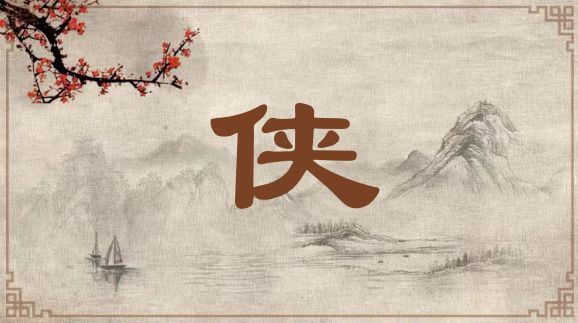Man of Righteousness / Hero

指凭借自己的力量抑强扶弱、见义勇为的人。“侠”是中国人所赞颂的一种理想人格。它被赋予了多重精神内涵,最主要的是“义”和“勇”。“义”指坚持道义,匡扶正义,尊崇信义;“勇”指行义,即按照“义”的原则,身体力行,扶危济困,舍己为人,利国利民,言必行,行必果。它体现了中国人所崇尚的为正义勇于献身的英雄精神。
This term refers to those who, with their own strength, stand up for the weak and daringly face down injustice. It depicts an ideal personal character that finds its echo in the hearts of everyday Chinese people — a shared aspiration that resonates deeply in the national collective psyche. The inspirational appeal of a man of righteousness or hero springs from a fusion of intrinsic values, underpinned by a sense of righteousness and courage. Righteousness represents moral integrity, a dogged determination to uphold justice and to stand by one's word. Courage, meanwhile, refers to an abiding commitment to righteousness — stepping up, lending a hand, selflessly giving, serving the wider good, and walking the talk. Man of righteousness or hero is a resonant symbol in Chinese culture, encapsulating a deep admiration for those who are ready to pursue justice with no thought of oneself, thus epitomizing the spirit of a true hero.
引例 Citations:
◎救人于厄,振人不赡,仁者有乎。不既信,不倍言,义者有取焉。(《史记·太史公自序》)
解救他人于危难,救济他人于贫穷,仁爱之人有此美德。不失去诚信,不背弃诺言,追求道义的人有可取之处。
Lending a hand to those in dire straits and supporting those in need – isn't this the essence of benevolence? Holding true to one's word, and never breaking one's promise — isn't this the essence of righteousness? (Records of the Historian)
◎纵死侠骨香,不惭世上英。(李白《侠客行》)
纵然身死而能侠骨流芳,不愧对世间任何英豪。
Even the bones of a man of righteousness will long be revered after his fearless death, and such a man is equal in honor to any living hero. (Li Bai: Ballad of the Man of Righteousness)
推荐:教育部 国家语委
供稿:北京外国语大学 外语教学与研究出版社
责任编辑:钱耐安





